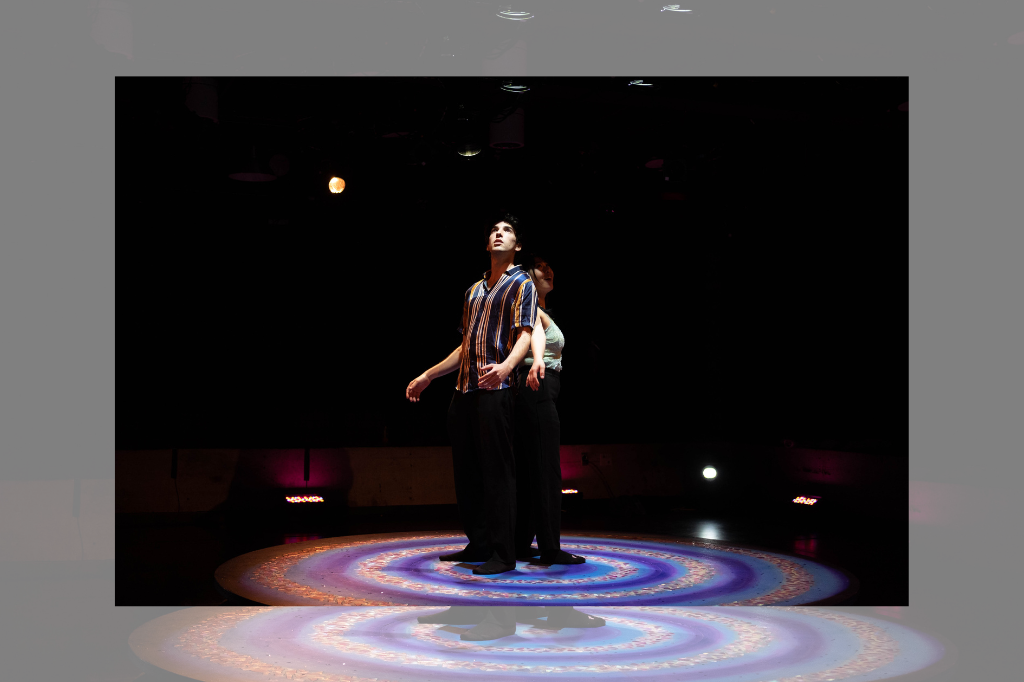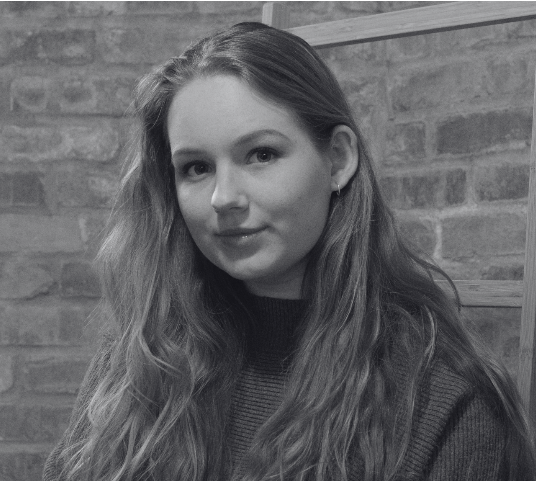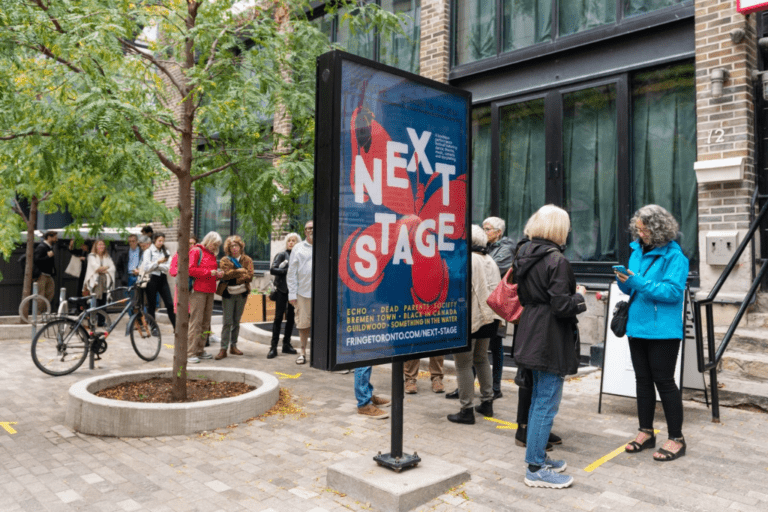REVIEW: ECHO is a chilling reflection of nightclub love and the pitfalls of passion
INT. Nightclub — Two beautiful strangers. A shared gaze so electrifying it makes the $20 cover charge and that thick vapour of sweat rising from the dance floor all worth it.
A real fairy tale, you know?
Directed by Robert Morrison as part of Next Stage Theatre Festival, Kole Dunford’s ECHO is an intimate and vivacious exploration of love and selfishness. This modern reimagining of the Greek myth follows Echo (陳佳琦 Jennifer Tan) and Narcissus (Tom Shoshani) as they recount their fatal attraction. As we watch their smouldering relationship suffocate, ECHO forces us to confront conflicting impulses in human nature: How can we reconcile our need to be truly loved with our love of self absorption?
Narcissus teaches us about Echo, about her bubbly personality and curious mind. In turn, she reveals that Narcissus has an all-consuming obsession with creating his magnum opus — opening a bar/artist space in which to perform. As Narcissus spirals into his personal projects, Echo understands the real world will always come second place.
As artists, we are pushed to embody our art in every space, but it can grow hollow and egotistic to treat every interaction as a cover letter. This show explores isolation in pursuit of self-serving passion, and the bridges we burn along the way. In spite of the sorrow it depicts, ECHO does not leave us without a path forward. It posits that art is meant to be shared and shaped by our communities, and that we can make both meaningful art and love through open collaboration. Without the perspectives of others, we are lost in our own reflections.
Pity they had to learn the hard way.
Their downfall begins as an innocent mushroom trip, which was the highlight of the show for me. Lighting designer Mathilda Kane perfectly captures the beautiful terror of psychedelics, while Tan and Shoshani hilariously embody the tumultuous emotional experience. Vivid greens and purples make for an ethereal come up, only to be shockingly ripped away by a harsh indigo blackout when their high is soured when they become trapped in a mirror. Together with the actors’ clear rapport and intentional movements, this section feels like a choreographed dance piece — an intimate moment of silence balancing the maelstrom of their discussion.
The whole effect is a time-warped, thrilling spectacle that gives an intimate look at their metastasizing relationship reservations: Narcissus lies about wanting to marry Echo, and Echo fears becoming a voiceless parrot to Narcissus’ desires.
ECHO never villainizes either character for their faults. Durnford’s he said-she said style gives the characters a layer of distance from their actions even at their cruelest, blending dialogue with monologue as the characters constantly switch perspectives. They talk about each other more than to each other, dulling the emotional urgency of their fighting.
More so, it provides a fatalistic undertone for the entire narrative that gives us some timeless mythological oomph. Narcissus and Echo start the show speaking in past tense about each other — we understand they aren’t supposed to make it! Yet we love with them along the way.
The show is fast-paced, evocative of the characters’ whirlwind relationship, but at times can feel a bit verbose clocking in at 75 minutes. Ironically, a play critiquing the navel-gazing tendencies of artists falls into this trap, which brought a layer of purpose to my moments of disengagement. Instead of growing bored, I could further empathize with Echo’s weariness of Narcissus’ insular lifestyle.
Overall, ECHO is an emotionally poignant, visually stunning story that questions our ability to nurture love and remain devoted to ourselves. The show warns us, especially as artists, to not lose ourselves in insular creative pursuits at the expense of our connections.
ECHO runs until October 28 as part of Next Stage Theatre Festival at Buddies in Bad Times Theatre. The show is produced by a front company. Tickets are available here.
Intermission reviews are independent and unrelated to Intermission’s partnered content. Learn more about Intermission’s partnership model here.










Comments